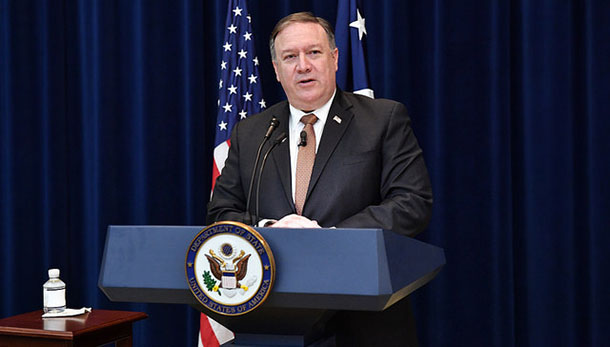Washington DC — Secretary of State Mike Pompeo says he is taking action to guarantee reciprocal access to Tibet—the principle that American citizens should be able to freely visit Tibet the way Chinese citizens are free to come and go in the United States.
Responding to a set of questions raised by the House Committee on Foreign Relations at a hearing on May 23, 2018, Pompeo wrote “I am working to ensure that US journalists, legislators, scholars, and members of civil society have unimpeded access to all areas [of] China, including the Tibet Autonomous Region and Tibetan areas.”
Pompeo was specifically asked about the Reciprocal Access to Tibet Act, which aims to end China’s restrictions on access to Tibet and currently has 51 co-sponsors in the House of Representatives and seven in the Senate.
Tibet, a historically independent country, is under Chinese occupation. Entering the Tibet Autonomous Region (TAR) is impossible without acquiring a Tibet Travel Permit from the Chinese government and arranging for a state-approved tour guide. This process allows China to prevent journalists, human rights monitors, academics and others from entering the TAR without permission from Beijing. No other province-level entity in China has equivalent barriers to access.
Pompeo’s response to the committee shows that the idea of ensuring reciprocal access to Tibet is gaining momentum. The secretary wrote: “President Trump has regularly stated his desire for reciprocity in the US-China relationship. I am committed to pushing for reciprocity regarding the open access China and many other countries enjoy in the United States.”
Answering the committee’s other questions, Pompeo reaffirmed the Trump administration’s commitment to fully implementing the Tibetan Policy Act, which includes the appointment of a Special Coordinator for Tibetan Issues, a position within the State Department that is required by law but still vacant.
Speaking on the topic of prisoners of conscience, Pompeo said he would advocate for the release of Tibetan political prisoners in his discussions with Chinese officials.
Pompeo also reiterated his concern about the human rights situation in Tibet and called on the Chinese government to resume dialogue with the Dalai Lama or his representatives without preconditions.
The Chinese Communist regime began their invasion of Tibet in 1949, reaching complete occupation of the country in 1959. Since that time, more than 1.2 million people, 20% of the nation's population of six million, have died as a direct result of China's invasion and occupation. In addition, over 99% of Tibet's six thousand religious monasteries, temples, and shrines, have been looted or decimated resulting in the destruction of hundreds of thousands of sacred Buddhist scriptures.
The secretary’s comments follow his earlier positive statements in response to questions from the Senate Foreign Relations Committee.


![Tibet has a rich history as a sovereign nation until the 1950s when it was invaded by China. [Photo: File]](/images/stories/Pics-2024/March/Tibet-Nation-1940s.jpg#joomlaImage://local-images/stories/Pics-2024/March/Tibet-Nation-1940s.jpg?width=1489&height=878)
















